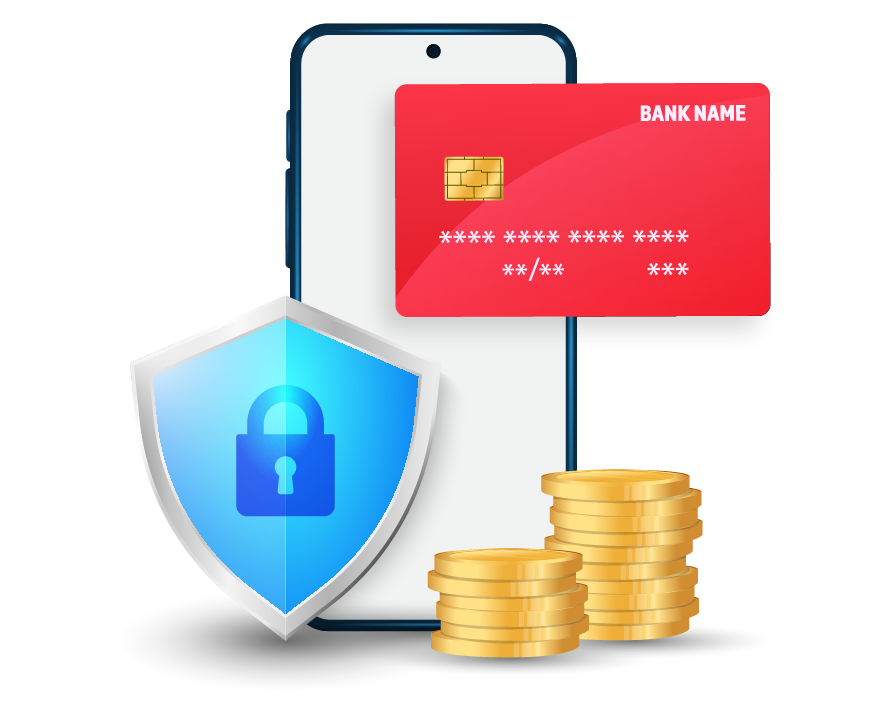In an increasingly digital world, online transactions have become an integral part of our lives. The convenience has been undeniable ranging from shopping, paying education fees, managing travelling expenses and paying bills to transferring funds, and the convenience of online payments is undeniable. However, this convenience comes with a critical concern: security. The safety and security can be derived from a sophisticated and robust system that works a digital guardian that works tirelessly behind the scenes to ensure that transactions remain secure, and your financial data remains confidential. Let's delve into the essential role played by payment gateways in safeguarding your financial transactions.
Best Practices of Online Payment Security
Payment gateways maintain the security of your transactions through several key methods and protocols. Let’s check out a few primitive methods using which payment gateway can secure the transactions.
Encryption : Payment gateways use strong encryption methods to protect sensitive data during transmission. Typically, they employ SSL (Secure Sockets Layer) or TLS (Transport Layer Security) protocols to encrypt the data, making it unreadable to anyone trying to intercept it. These protocols ensure that the communication between the customer’s browser and the payment gateway remains secure, protecting the data from interception or tampering. Selecting the best payment gateway in India can be a difficult task, but once you figure out the exact requirements of your business, the digital payment journey can be easily accepted.
Compliance with Payment Card Industry Data Security Standard (PCI DSS) : Payment gateways adhere to strict PCI DSS standards, dictating rigorous security measures and practices for handling payment data. These standards include data encryption, regular security audits, and maintaining a secure network infrastructure.
Two-Factor Authentication (2FA) : Payment gateways often require two-factor authentication for users, adding an extra layer of security. This may involve a combination of a password and a mobile device or an authentication app.
Fraud Detection and Prevention: Online payment platforms employ sophisticated fraud detection tools to spot suspicious transactions. They use algorithms and machine learning to identify patterns and anomalies, helping fraud detection in online payments. Payment gateways restrict access to sensitive data to authorized personnel only. This includes implementing strong password policies, access controls, and monitoring user activities.
Tokenisation: Many payment gateways use tokenisation to enhance security. Instead of storing actual card details, they generate and store a unique token that represents your payment information. This way, even if the gateway's data is breached, your sensitive details remain secure. Many secure payment gateways offer tokenization services to further enhance payment security. Tokenisation, which replaces sensitive payment data with unique tokens that are useless if compromised, helps protect customer data, reduces the risk of data breaches, and simplifies PCI DSS compliance for businesses.
Address Verification System (AVS): AVS helps verify the authenticity of the billing address provided during a transaction. It can flag discrepancies between the address entered and the one associated with the payment card.
Regular Security Updates: The best online payment gateways in India continuously update their security measures to stay ahead of emerging threats and vulnerabilities. This includes patching any known security issues promptly. Payment gateways actively monitor transactions in real time to detect any suspicious or unauthorized activities. They can block or flag transactions that exhibit high-risk characteristics.
Payment gateways are the invisible but unyielding fortifications that ensure your transactions remain secure in an increasingly interconnected world. Pay10 Payment Gateway is secured with PCI-DSS Level 1, SAR (PAPG & Data localization) and Vendor Site Compliance Certificate (VSCC), ISO 9001:2015, 27001:2013 certifications. While the servers hosted by reliable cloud service provider Amazon Web Services (AWS) offer unparalleled data security, Transport Layer Security (TLS) to encrypt information exchange, CoFT (Card on File Tokenization) implemented Payment ecosystem with enhanced checkout experience.
FAQ
- Q1.How do payment gateways keep transactions secure?
Payment gateways use encryption protocols like SSL/TLS to encrypt your payment information during transmission, making it unreadable to unauthorized parties.
- Q2.What role does encryption play in payment gateway security?
Encryption ensures that sensitive data, such as credit card numbers, is scrambled into an unreadable format, which can only be decrypted by authorized parties, keeping your transactions secure.
- Q3. Why is the exchange of encryption keys important in payment gateways?
The exchange of encryption keys, using public key infrastructure (PKI), allows secure communication between your device and the merchant's server, ensuring that the payment data remains confidential and protected during the transaction process.

